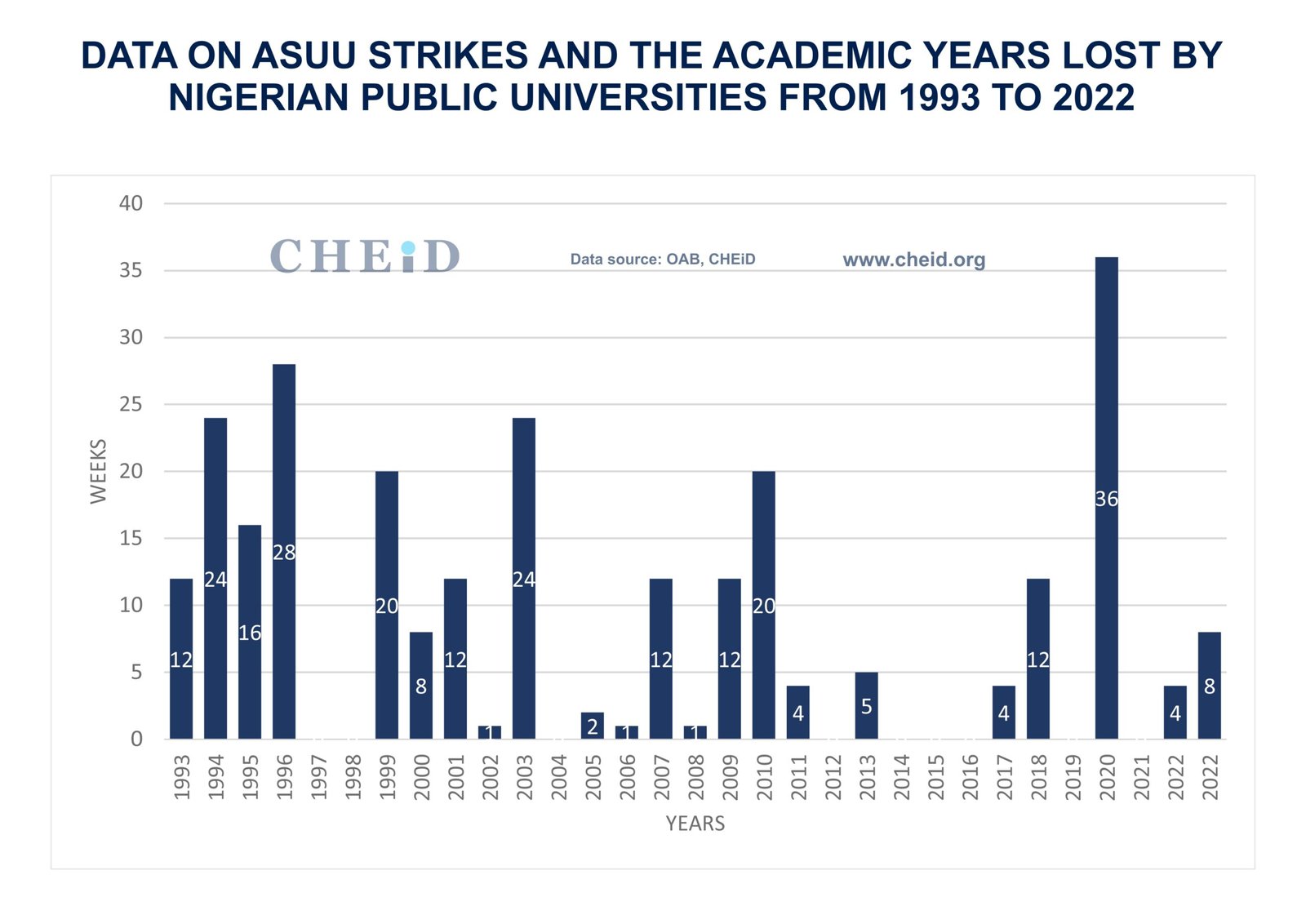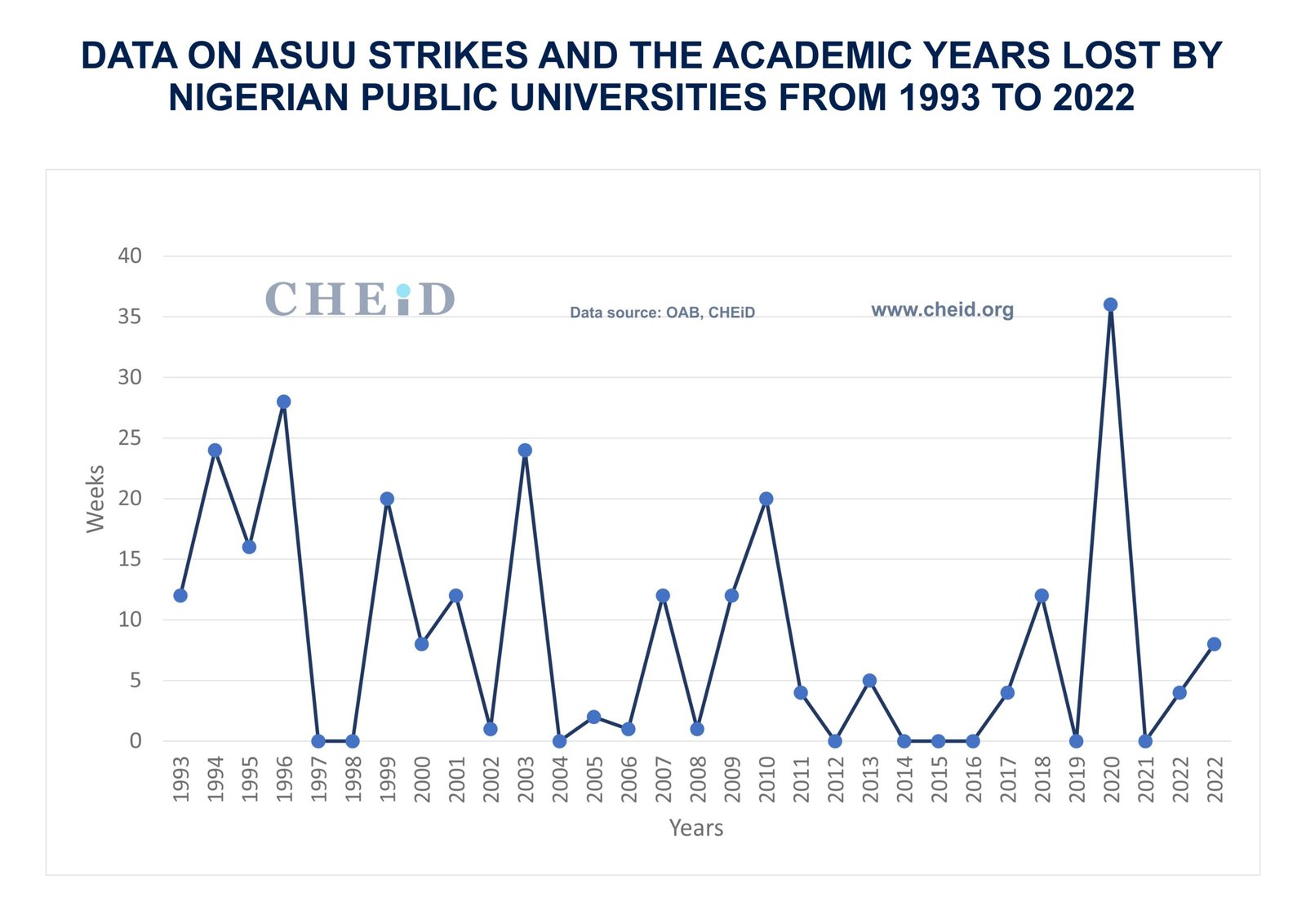Over the last 3 decades, between 1993 and 9 May 2022, Nigeria’s public university system has cumulatively lost about 9 academic years due to strikes by the Academic Staff Union of Universities.
In the last 29 years there has been a total of 266 weeks of strikes by the union. In Nigeria, 30 weeks make a full academic year. To this effect, between 1993 and 2022, the Nigerian public university system lost 9 academic years, having experienced ASUU strikes on 22 occasions in 29 years – whether as a warning, suspended or indefinite strike at a time.

Imagine the cumulative economic impact of ASUU strikes on Nigeria
When you consider the total number of public universities in Nigeria, and the aggregate population of students and academic staff in those universities, you begin to appreciate the enormity of loses Nigeria is recording as a country in the last 29 years in terms of:
- Number of wasted man hours.
- The cost of loss of confidence in public tertiary institutions.
- Brain drain to other countries.
- Weakened economies of institutions’ host communities.
- Cost of depreciating infrastructure in public universities while those strikes lasted.
- Depreciation of morale of staff and students (even those seeking admissions).
- General drop in the quality/standard of education with impact on the average productivity/quality of graduates especially from the public institutions.

One other critical loss factor that cannot be quantified is the uncertainty the strike creates in the entire ecosystem. Add these losses to other direct costs of the recurrent strikes; you will then understand that it’s been nothing less than an unfortunate, immeasurable and avoidable disaster for Nigeria.
Authorities responsible – government and the union, must find a lasting solution to the strikes, urgently!



